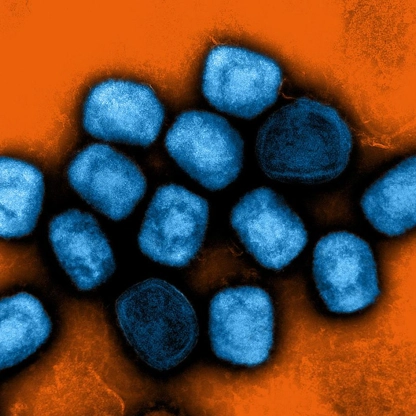Mpox is a disease caused by infection with a virus, more specifically, an orthopoxvirus, a family that includes mpox, cowpox and smallpox. The first human case of mpox was recorded in 1970 in what is now the Democratic Republic of Congo.
The mpox virus spreads through close, personal contact including direct skin-to-skin contact with mpox rash or scabs or prolonged contact with saliva, upper respiratory secretions or bodily fluids. Pregnant people with mpox can pass the virus to the fetus during pregnancy or to the newborn during and after birth. The virus can also sometimes spread though contact with contaminated materials like clothing, towels or bedding.

